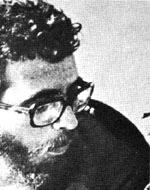Son of Moshe and Atka – Holocaust survivors. Born on the 27th of Shevat 5714 (27.1.1954) in Tel Aviv, grew up and was educated in Bnei Brak. Where he studied at the Komemiyut Elementary School, where he excelled in his studies, discovered technical talents and liked drawing, and warned about his literary ability and won a first prize for a connection to the memory of a Jewish diaspora in the Diaspora. He was educated in the Scouts movement, which aroused his passion for wandering for the first time in Israel, and despite his obvious humanistic tendencies, the technical skills in favor of entering the Ort Technikum vocational school in Givatayim were defeated. He accepted the decision, but the next few years taught him that he had made a mistake in choosing his path A six-year camp in Technikum, and when they finished, he was awarded the diploma of a practical engineer in mechanical engineering (sub-specialization: construction of machinery and materials processing), Yaakov joined the judo club in the Hapoel organization and then went on to become a blue belt. He spent many night-time walks alone or in a chat with a friend, but the hobby, which fascinated him every time he was at his high school and in the army, was to make trips around the country. There was no stone in Jerusalem whose feet did not tread on it. He was impressed by the country’s landscapes, from the Golan Heights to South Sinai. The wanderings never came fully satisfied. “I love the country much more, I will not do the expense of the Lev and the emotion, the sweat and the effort, the time and the kilometers,” he wrote in a letter to a beloved friend. His technical training largely determined Yaakov’s career in advance, and when he was drafted into the IDF in mid-May 1974, he was assigned to a workshop in the Armored Corps. He was sent to a professional course and was awarded a high degree. However, two months after his enlistment, he asked to be transferred to a volunteer unit or a combat unit. After a struggle they accepted his request and he was transferred to the navy for a naval course. The army did not want to give up its technical skill, and was therefore assigned the role of naval engine. As long as most of the training and sailing in the free-air took place, he enjoyed the service, but when he was to spend whole days in the engine room in the hold, he was fed up with this job and left the course. Jacob was sent to assume a responsible position of maintaining a barge floating on the Bardawil stage. “Yaakov was a dominant, active figure with a well-developed public awareness of what was going on in the unit, and his vigilance, awareness and initiative contributed greatly to improving living conditions in the unit’s work,” the commander wrote. At the end of his compulsory service, he still had to serve for one year in the career army. In the meantime he rose to the rank of sergeant, and at the end of 1976 he was promoted to the rank of lieutenant colonel, and Jacob charmed his commanders and friends with his unusual personality, setting an example for them to coexist in harmony even in the completely isolated place where he served. He was always the first to do any kind of volunteer work, but stubbornly defended his principles and justice, and Yaakov remained for only one month until the liberation, seeking to join a settlement group that was about to cling to a remote country. Adar B, 5738 (March 11, 1978) In the afternoon, he was waiting for a ride at the Country Club in Tel Aviv. Suddenly he heard shots and he saw policemen hiding themselves from the bullets in the ditch by the road. After one of the policemen pointed to the bus on which the terrorists had taken control, Ya’akov told the policeman: “I’m free, I have a Kalashnikov, and I’ll try to do something.” And he did the unbelievable thing: he broke into the bus and helped preventThe murderers carry out their plot. He then fought the terrorists outside the vehicle, and during the fighting, he fell. Yaakov was brought to eternal rest in the military cemetery in Kiryat Shaul. Left behind his parents and sister, as well as friends and friends shocked, who saw Jacob as the embodiment of the best youth that grew and grew in the Land of Israel. His brilliant personality and brilliant literary talent came to discover Jacob’s selection of letters, which the family and friends gathered in the memorial book Paz. His memory was also immortalized by the establishment of a library at the school for the Bat Yam infantry. Corners in his memory were also erected in the cultural room of the unit where he served recently and at the Komemiyot elementary school in Bnei Brak.
